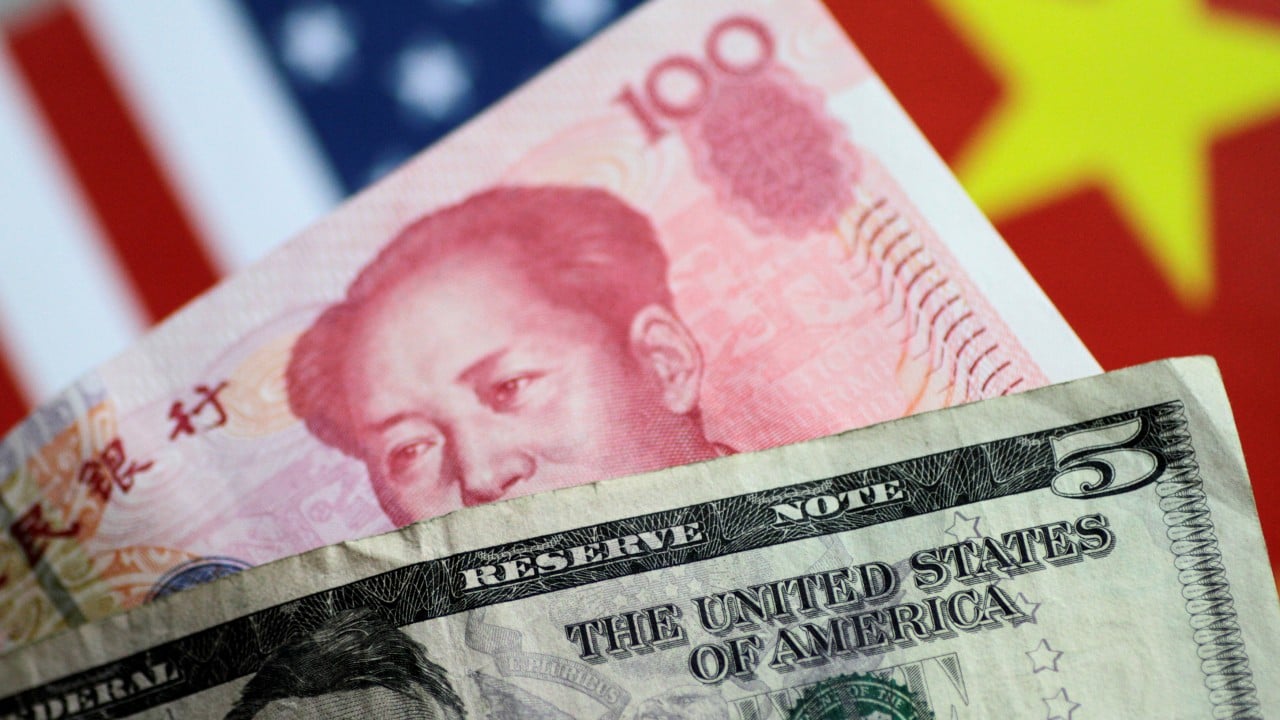US sanction threats against Chinese banks over Russia trade ties risk ‘gargantuan’ financial instability
Washington would create global financial instability, while damaging the United States’ already tenuous ties with Beijing, if it carried out reported threats to sanction Chinese banks over their trade with Russia, and even cut China out of the Swift global interbank system, analysts said on Wednesday.
The Wall Street Journal reported on Monday, without elaboration, that Washington was drafting sanctions to help US Secretary of State Antony Blinken persuade Beijing to stop any commercial support for Russia’s military production.
Blinken arrived in Shanghai on Wednesday at the start of a three-day visit to China, which will include a meeting with Chinese Foreign Minister Wang Yi to discuss a range of issues, including Taiwan, perceived unfair trade practices and industrial overcapacity.
But any financial sanctions against China as a major trading partner with much of the world would set back transactions in Europe and the US, where merchants conduct brisk business with China, the analysts said.
This could severely impede the interests of American companies and investors in China
“The US would be creating a gargantuan source of financial instability for not only China, but also itself,” said Brian Wong, a fellow at the Centre on Contemporary China and the World at the University of Hong Kong.
“This could severely impede the interests of American companies and investors in China, especially given the likely retaliation that would come either immediately, or in due course.”
And the possible removal of China from the Swift network is a “nuclear option” that would set off a “significant logjam in transactions and clearing for trade, which would culminate in cost-push inflation across the board”, Wong added.
China’s world trade reached 41.76 trillion yuan (US$5.8 trillion) in 2023, while its vast consumer market is coveted by foreign multinationals.
China’s ‘extreme’ national security focus a drag on business: US trade group
China’s ‘extreme’ national security focus a drag on business: US trade group
The Society for Worldwide Interbank Financial Telecommunication network, which is widely known by its Swift acronym, allows roughly 11,000 financial institutions to exchange money transfer instructions.
The European Union and other countries removed some Russian banks from the network in 2022 following the invasion of Ukraine.
But to also cut China from the network would inconvenience companies abroad, especially in Europe where multinational companies trade robustly with China, said James Chin, a professor of Asian studies at the University of Tasmania in Australia.
“[Removal from Swift] will be a huge problem because China is a main trading partner for many countries around the world,” Chin said.
“I think they will face opposition from European countries and other countries that do a lot of business with China.”
What is China’s Swift equivalent and what are its origins?
What is China’s Swift equivalent and what are its origins?
Added to their pile of differences over trade, technology and geopolitics, the US and China differ in their approaches to Russia.
Washington has punished Moscow over the war in Ukraine, while China has taken a neutral stance and still conducts business with Russia.
Ministry of Foreign Affairs spokesman Wang Wenbin said on Tuesday that China had already imposed export restrictions on goods that could have military applications, but rejected criticism from Washington over Russia.
And sanctions against Chinese banks would accelerate China’s efforts to craft its own intercountry transaction system and internationalise the yuan, analysts said.
It would risk causing a major bilateral crisis that would make it impossible to work constructively with China on any issue
China launched the Cross-Border Interbank Payment System, or CIPS, in October 2015 to provide an independent international yuan payment and clearing system connecting both onshore and offshore clearing markets and participating banks.
Broader ties between China and the US would suffer if any bank sanctions took hold, said Denny Roy, senior fellow at the East-West Centre think tank in Hawaii.
“It would risk causing a major bilateral crisis that would make it impossible to work constructively with China on any issue,” he said.
In ‘no-limits’ partnership, why isn’t China letting Russia take out yuan loans?
In ‘no-limits’ partnership, why isn’t China letting Russia take out yuan loans?
The Reuters news agency reported on Wednesday that the US had “preliminarily discussed sanctions on some Chinese banks”, but with no short-term plan to carry out such measures.
The Reuters report, which quoted a US official speaking on condition of anonymity, said Washington hoped diplomacy would “avert the need for such action”.
Wong called exploration of bank sanctions “largely a calculated bluff” and a “signal” from the US, who want to increase pressure on China over its stance on Russia.
What if Russia’s capacity to sustain itself in the war continued unabated
Russia and China have nearly eliminated the US dollar from two-way commerce according to Russian Foreign Minister Sergey Lavrov, state-owned Russian news service TASS reported on Monday, and instead favour the yuan and rouble.
“The logical follow-up question is what the US would do about the aftermath of such sanctions,” said Zha Daojiong, an international studies professor at Peking University.
“For example, what if Russia’s capacity to sustain itself in the war continued unabated?”


